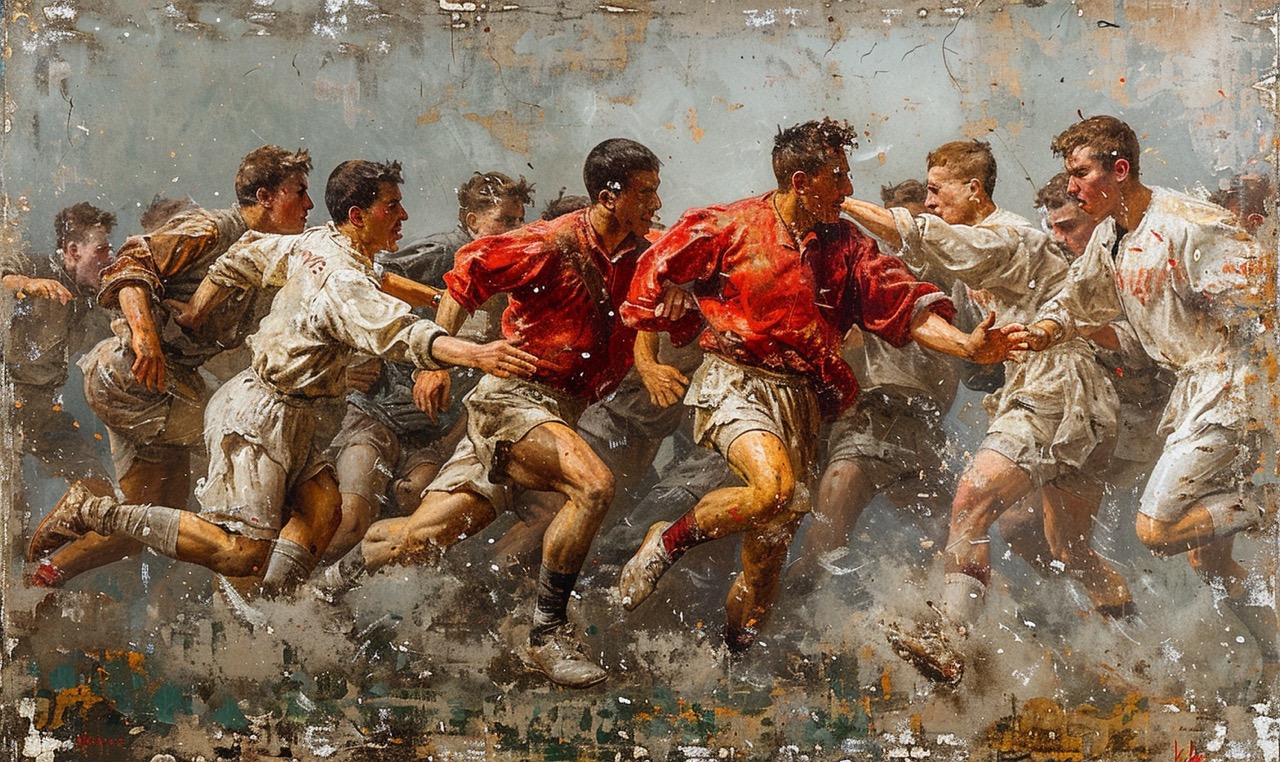Success Advice
Competing At The Next Level And How To Get There

Ask me who I view as the most entertaining entrepreneur around and I don’t have to think twice about it.
Mark Cuban.
I love watching this guy surveil and engage at Maverick games, on Shark Tank, at celebrity events and motivational seminars—wherever. Even with that “made for the Mafia” scowl of his, he’s all passion and charisma. A cheetah-quick mind; wit as dry as breakfast cereal before the milk. And the transparency of a junkyard dog about what he thinks. He’ll tell anybody who’ll listen that they can replace him as “the world’s luckiest man” and then warn you that he’ll fight to keep the title because he loves the competition.
So what if this Mark Cuban came to me and said, “I’m ready to take competing to a new level. What comes next?”
I would tell him this:
The idea of competing is in big, big trouble. And people who think like a shark are mainly the reason why. Cheating is all too commonplace and too seldom punished. And the playing field available to everyone else is getting smaller and more uneven. Today’s avaricious, power-hungry sharks are getting bigger and bigger. Anyone who gets in their way is seen as bait fish. And each of them wants to be the last shark swimming—to at last have everything for themselves.
But, you ask, isn’t this the way the great Scottish economist Adam Smith and the other framers of free enterprise intended competition to be?
Absolutely not.
And isn’t this the best way to get the creative “churn” that fuels innovation and keeps the system, the organization and the individual dynamic and questing and fresh—at the top of their game?
Unfortunately, it isn’t.
If you want to take competition to the next level, Mark, my advice is this: I think you ought to give up thinking like a shark altogether and start thinking like a dolphin. Why? So you can see and understand competition in a much different light.
You will begin to realize that competition’s role in free societies is much greater than simply helping to keep the pots of commerce and technological innovation fresh and bubbling.
In its most important sense, competition is what We, the People, use to compensate for the fact that much of the time this brain of ours is wildly inadequate for determining the most suitable actions we can take to assure ourselves a viable future.
That’s because our brain is constantly cherry-picking the evidence and dismissing anything that doesn’t fit our preferred personal story line. The experts have given the name “brain biases” to these subjective processes in our heads. Wikipedia describes several hundred of them. Without us even realizing it, our brain is ceaselessly distorting reality, trying to make it to fit our beliefs and prejudices and automatic (sub-conscious) cognitive processes.
But even before psychologists and neuroscientists began to realize just how big this problem is, some very bright people had already sensed the danger.
That’s why we’ve set up one institution after another in the past three centuries where you and I can argue about what is true and right, what is smart and needed. Can argue tooth and toenail, with fur flying. We call these “arenas of competition” marketplaces and democratic governments and law-based judicial systems and scientific laboratories.
So don’t think of human competition just as a sporting business, Mark. (I know you’ve even used that idea as a book title.) Instead, think of it as the greatest incubator of human improvement ever devised. Viewed this way, competing becomes a sacred trust. The idea and the ideal must be protected at all costs. And the means to compete must be kept vibrant, accountable and as fair as possible.
Some years ago, I began to sense that protecting the ability to compete in rapid-change times was going to require at least some human brains to rise to the occasion—to, indeed, move on to the next level. Their brains were literally going to have to experience a “rapture of the neurons” and wire themselves differently.
You can imagine my delight at discovering research like that of the late American psychologist Dr. Clare W. Graves indicating just such a phenomenon was already under way. Vibrant new world-views—systems of beliefs—were a’borning in inquisitive, changing brains. They were the product of a vigorous competition within the brain itself that our best researchers into the mind are still struggling to understand.
 For years now, I’ve called the new brain-view I like best “the dolphin mind.” (Why? Because I’ve always liked aquatic metaphors—and what’s not to like about the ocean’s innovative, big-brained, sleeps-with-one-eye-open dolphin?)
For years now, I’ve called the new brain-view I like best “the dolphin mind.” (Why? Because I’ve always liked aquatic metaphors—and what’s not to like about the ocean’s innovative, big-brained, sleeps-with-one-eye-open dolphin?)
When the human “dolphin” competes, it’s for the purpose of determining whose ideas are right and whose aren’t, not seeing who can destroy the other the quickest or capture the biggest slice of the pie.
Dolphins are mobilized and motivated by a fiercely pragmatic, diamond-bit-ended search for what works, what’s possible, what makes sense. And this, in itself, can make them formidable competitors.
Even when competing, dolphins tend to tell the truth as they understand it. This is because they believe truth-telling is the most effective way to avoid wasting time, energy and resources on useless, unproductive drama. Also, they believe that this is the straightest route to, and the quickest mechanism for, being trusted and being able to trust.
Dolphins like to win. But they don’t need for you to lose unless you insist on it. If there is little at stake or if they can learn something significant in doing so or if it can make important things happen, they aren’t opposed to losing either.
If dolphins have a trademark rule it is “First things now.” Relentlessly pragmatic, dolphins almost always act on “the big picture” and do it quickly. But if it helps to find the next right, smart, good thing or move, they are also capable of focusing on the smallest details.
Dolphins don’t care where good ideas come from. And they are always open to alliances and collaborations that work and make good things happen.
Dolphins are willing to retaliate to get their point across, counteract unfairness or sweep aside the obstinate, the ridiculous or the superfluous. But they don’t do so recklessly. They understand—as psychologist Jonathan Haidt has observed—“order is really hard to achieve. It’s really precious, and it’s really easy to lose.”
So, Mark, that’s what I see ahead for competition’s next generation of leaders.
It’s going to take lots and lots of Enlightenment-loving dolphins. They are going to need to do everything they can think of to protect our ability to compete. To test our best ideas and efforts vigorously but accountably. And to make sure that everyone who wants to participate gets to play on a level field using rules that are fairly enforced and methods that flag and contain the cheats.
Your leadership is vitally needed to protect the sacred trust that we’ve used to build the most productive societies in the history of civilization. So, first things now! It’s time to make the leap to the next level of competing!
Business
Why Smart Entrepreneurs Are Quietly Buying Gold and Silver
When stocks, property, and cash move together, smart business owners turn to one asset that plays by different rules.

You’ve built your business from the ground up. You know what it takes to create value, manage risk, and grow wealth. But here’s something that might surprise you: some of the most successful entrepreneurs are quietly adding physical gold and silver to their portfolios. (more…)
Business
The Simple Security Stack Every Online Business Needs
Most small businesses are exposed online without realising it. This simple protection stack keeps costs low and risks lower.

Running a business online brings speed and reach, but it also brings risk. Data moves fast. Payments travel across borders. Teams log in from homes, cafés, and airports. (more…)
Business
If Your Business Internet Keeps Letting You Down, Read This
From smoother operations to better security, dedicated internet access is quietly powering today’s high-performing businesses.

Today, a dependable internet service is the bedrock for uninterrupted business operations. Many organizations rely on stable online connections for communication, data transfer, and customer interaction. (more…)
Did You Know
How Skilled Migrants Are Building Successful Careers After Moving Countries
Behind every successful skilled migrant career is a mix of resilience, strategy, and navigating systems built for locals.

Moving to a new country for work is exciting, but it can also be unnerving. Skilled migrants leave behind familiar systems, networks, and support to pursue better job opportunities and a better future for their families. (more…)
-

 News2 weeks ago
News2 weeks agoBrandon Willington Builds 7-Figure Business by Ignoring Almost Everything
-

 Health & Fitness3 weeks ago
Health & Fitness3 weeks agoWhat Minimalism Actually Means for Your Wellness Choices
-

 Did You Know3 weeks ago
Did You Know3 weeks agoWhy Most Online Courses Fail and How to Fix Them
-

 Business3 weeks ago
Business3 weeks agoIf Your Business Internet Keeps Letting You Down, Read This
-

 Business2 weeks ago
Business2 weeks agoEntrepreneur’s Guide to Pay Stubs: Why Freelancers and Small Business Owners Need a Smart Generator
-

 Business1 week ago
Business1 week agoThe Salary Shift Giving UK Employers An Unexpected Edge
-

 Business1 week ago
Business1 week agoThe Simple Security Stack Every Online Business Needs
-

 Scale Your Business1 week ago
Scale Your Business1 week ago5 Real Ways to Grow Your User Base Fast






























8 Comments